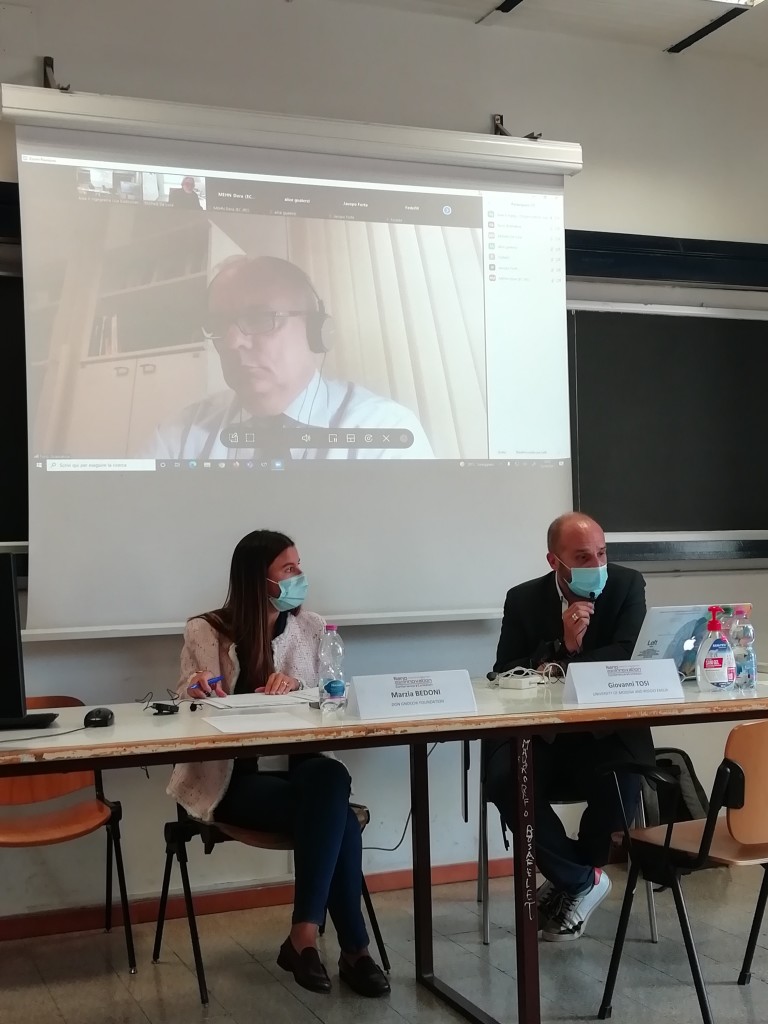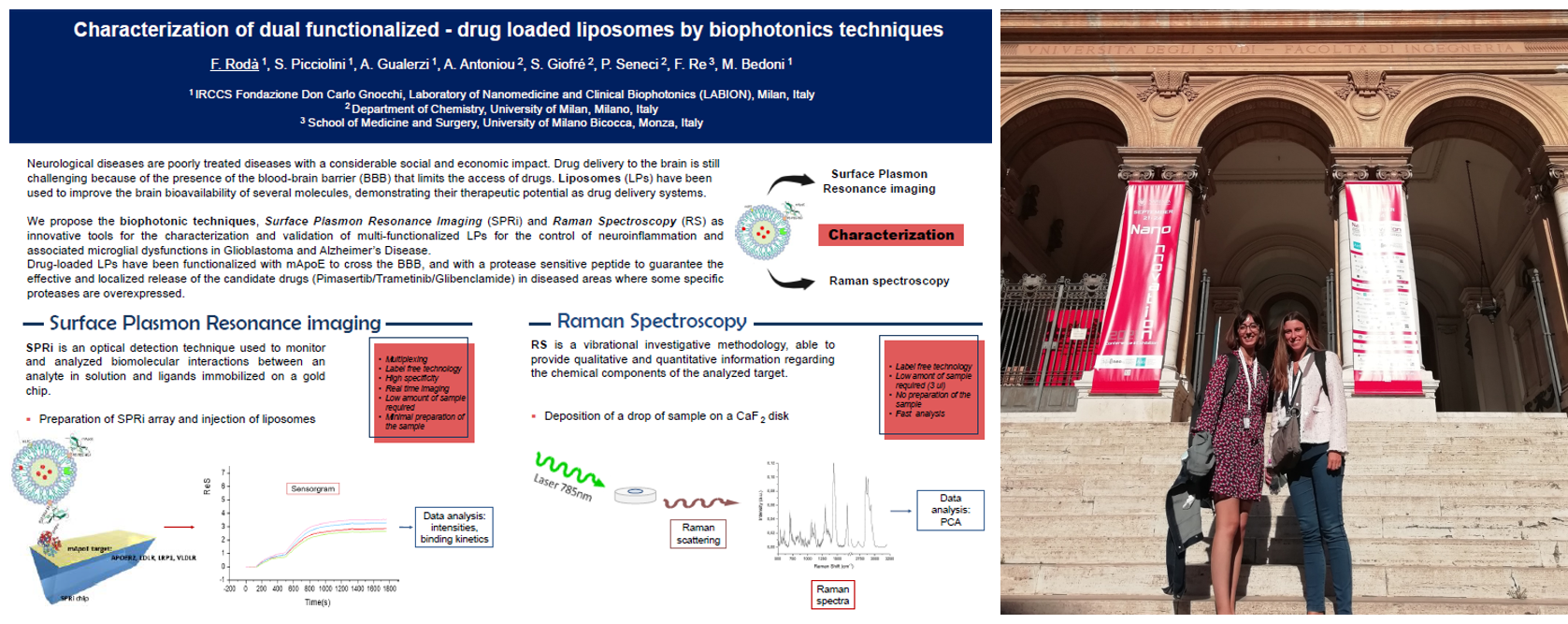NanoInnovation: a full immersion in the nanotechnology world
From 21 to 24 September was held in Rome NanoInnovation, a conference dedicated to micro and nanotechnology. Nanoinovation2021 focused on different fields and topics: from nanomaterials and nano-devices to nano-biotechnology, from health and environmental/energy safety to smart textiles, quantum technology and 3D manufacturing. It is also an excellent opportunity for PhD students and young researchers to present their research.
Marzia Bedoni (Fondazione Don Gnocchi), coordinator of #NEVERMIND project, was chair of two workshops on Innovative approaches in unmet clinical needs for maximum health care impact, from diagnosis to therapeutics aims. In line with Horizon Europe pipelines, the topics were about cancer, brain diseases, and cardiovascular pathologies.
On the subject of nanomedicine for brain tumors, Lorena Passoni (research scientist at Istituto Clinico Humanitas and member of NEVERMIND project) presented a work just published in collaboration with Francesca Re laboratory (University of Milano-Bicocca), about the synthesis of drug-loaded liposomes for the treatment of Glioblastoma.
Glioblastoma stem cells are a subpopulation of tumor cells characterized by significant resistance to chemo- and radio-therapy that constitutes the standard of care together with the surgical resection. Therefore these cells are responsible for the recurrence of the tumor and the low survival rate. In this work liposomes, functionalized with a modified peptide (mApoE), were loaded with doxorubicin, an anti-tumor drug in clinic since many years. These mApoE-liposomes allow to overcome the blood brain barrier (BBB) and vehicle the drug to glioma cells causing cell death. Moreover, the concomitant administration of radiation enhances the anti-tumor effects by altering BBB permeability, improving the therapeutic effects. The proposed approach fulfils the need to selectively target glioblastoma stem cells remaining after surgery, avoiding side effects in the healthy brain part.
Moreover, the Labion team participated in the poster session proposing their work on the characterization and validation with biophotonics techniques of NEVERMIND liposomes (Poster: Characterization of dual functionalized – drug loaded liposomes by biophotonics techniques).
Biophotonics-based methods take advantage of the physical properties of light to investigate the physico-chemical features of a sample. Surface Plasmon Resonance imaging (SPRi) analysis was performed in order to evaluate the binding affinity and kinetics of the liposomes to their target receptors, whereas Raman Spectroscopy (RS) was used to verify the quality control of liposomes synthesis. Results demonstrated the ability of biophotonics-based tools to evaluate the preservation of the binding affinity of liposomes to their target receptors and to identify statistically significant differences among the different liposomal formulations. The low amount of sample required and the minimal sample preparation make SPRi and RS excellent techniques for the validation and characterization of liposomes for clinical applications.








